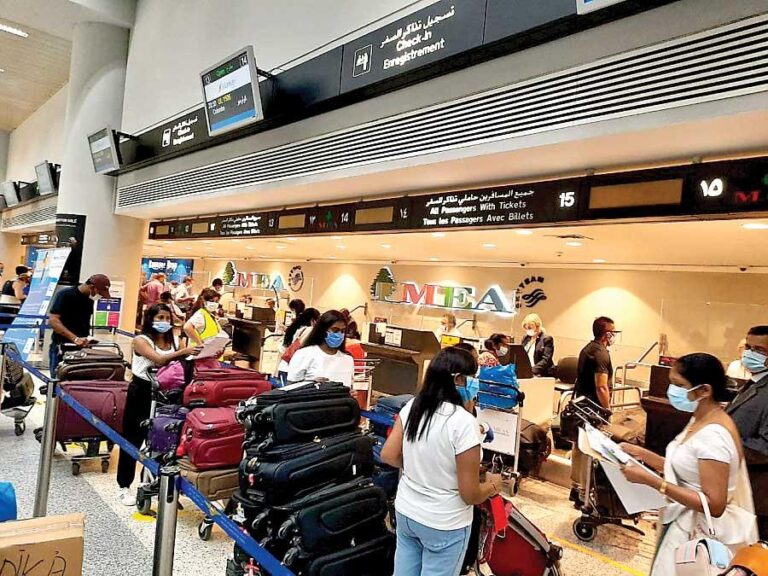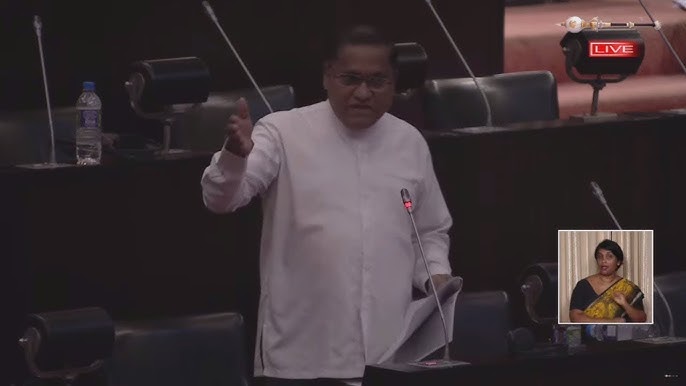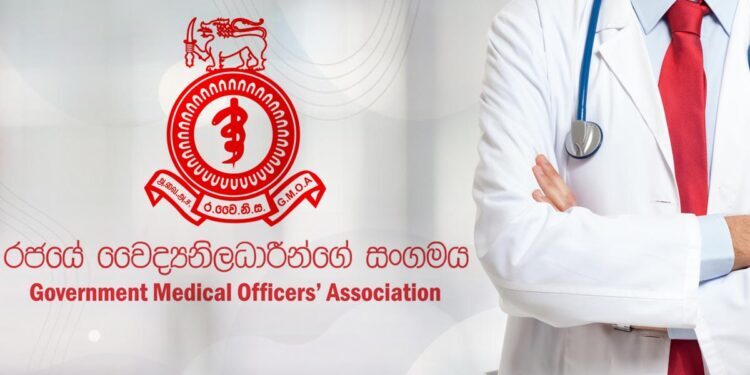By: Staff Writer
November 17, Colombo (LNW): The government’s proposal to establish a separate Office of the Director of Public Prosecutions (DPP) has sparked significant opposition from within the Attorney General’s Department, raising questions about its potential impact on judicial efficiency and the department’s operational integrity.
At a special general meeting on November 14, 2025, the Legal Officers’ Association of the Attorney General’s Department formally adopted a resolution opposing the move. While the association expressed support for initiatives aimed at improving independence, transparency, and efficiency, it strongly rejected the creation of a separate prosecutorial office.
The proposed DPP office is intended to segregate the prosecutorial function from the broader Attorney General’s Department, with the stated goal of enhancing the independence and impartiality of criminal prosecutions and expediting the administration of justice. Proponents argue that a standalone office would allow prosecutors to operate free from administrative constraints and bureaucratic delays.
However, the association contends that no empirical evidence or rigorous analysis has been presented to demonstrate that such separation would achieve these objectives. Members cautioned that a fragmented structure could instead undermine the department’s independence, dilute professional standards, and introduce operational inefficiencies.
“Independence and transparency must not be limited solely to prosecutions; they must encompass all functions of the Attorney General’s Department, including civil litigation and advisory roles,” the resolution emphasized. By carving out only the prosecutorial arm, critics argue, the government risks creating a dual structure where internal coordination breaks down, and the department’s holistic capacity to advise the state is weakened.
Legal experts suggest that such a separation could also have broader implications for the judiciary. A divided prosecution service may lead to inconsistent legal interpretations, delays in case preparation, and potential conflicts between the newly formed DPP office and the Attorney General’s Department. These challenges could inadvertently slow the criminal justice process rather than accelerate it, contradicting the reform’s intended purpose.
The association described the move as “unreasonable, arbitrary, devoid of any rational basis or merit, and ultimately counterproductive,” while reaffirming its willingness to support internal reforms aimed at strengthening departmental efficiency and accountability.
Observers note that a careful balance must be maintained between enhancing prosecutorial independence and preserving the unified strength of the Attorney General’s Department. Separating the two could create parallel hierarchies, increase administrative costs, and complicate coordination with law enforcement and the courts, factors that may weaken overall judicial effectiveness.
As the debate continues, the government faces a critical choice: implement structural reform without sufficient empirical justification, risking operational disruption, or pursue internal reforms within the Attorney General’s Department that enhance independence and efficiency while maintaining its established professional standards.
Proposed Public Prosecution Office Sparks Legal Independence Concerns
Sri Lanka’s Vehicle Surge Signals Deepening Economic Distortions
By: Staff Writer
November 17, Colombo (LNW): Sri Lanka’s vehicle market long distorted by import bans, erratic tax policies and unstable macroeconomic conditions has entered another turbulent phase, with official data showing a sharp slowdown in car and SUV registrations in October despite an unusual nine-month buying frenzy driven by pent-up demand and policy uncertainty.
According to a fresh analysis of vehicle registry data by Colombo-based brokerage J B Securities, total registrations—including motorbikes fell to 47,685 units in October 2025, down from 48,708 in September, signalling the first broad cooling after months of abnormal activity across segments.
Car and SUV momentum breaks after September’s spike
Motor cars, which hit a post-crisis high of 3,934 units in September, slipped to 3,612 units in October. SUV and crossover registrations saw a sharper contraction from 5,813 units in September to 5,075 in October.
This follows an extraordinary September spike where combined car and SUV numbers surged to 9,756 units, compared to 6,137 units just a month earlier. Industry analysts attribute the surge to aggressive front-loading by dealers anticipating tighter customs scrutiny, possible tax revisions, and delays in valuation processes.
Before the 2020–2022 economic crisis—triggered by a mix of inflationary open-market operations, excessive rate cuts and import controls—Sri Lanka routinely recorded 5,000–7,000 monthly registrations for cars and SUVs. October’s dip suggests the September peak was a temporary distortion rather than a sustained recovery.
BYD plunge highlights regulatory uncertainty
One of the most dramatic shifts was seen in electric vehicle (EV) registrations. Chinese EV giant BYD, which recorded 1,531 units in September, collapsed to 531 units in October after Sri Lanka Customs detained several shipments over a dispute on motor classifications. Analysts warn that such disruptions undermine investor confidence at a time when Sri Lanka is promoting EV adoption.
Meanwhile, emerging Chinese brand BAW gained traction, with its entry-level E-7 model registering 263 units, becoming one of the best performers in its category.
Commercial vehicles show mixed but rising trend
Commercial vehicle registrations presented a more complex picture. Vans climbed from 551 to 716 units, mini-trucks ballooned from 14 to 200, and medium trucks increased from 148 to 209. Heavy trucks also rose slightly to 227 units. Bus registrations declined to 107, though still higher than the August total of 66.
Agricultural vehicles recorded strong growth. Large tractor registrations surged to 1,031, up from 701, led by TAFE. Hand tractors rose from 85 to 128, with Vietnamese brand Vikyno topping the category with 52 units.
Three-wheelers and motorbikes stabilise near pre-crisis norms
Three-wheeler registrations fell to 2,541 units, down from 3,015, yet remained above August levels. Before the economic crisis, Sri Lanka routinely recorded around 10,000 units per month, showing that demand remains depressed. Motorbike registrations Sri Lanka’s most stable category stood at 32,768 units, near pre-crisis levels.
A distorted market with real economic consequences
Economists warn that the erratic swings in vehicle imports highlight deeper structural weaknesses, policy inconsistency, heavy reliance on import taxes, and ongoing foreign exchange pressures. Without a coherent long-term import and taxation strategy, they caution, the vehicle market will continue to swing abruptly between scarcity and unsustainable surges, with significant macroeconom
Secret Defence Deals Erode NPP’s Transparency Pledge and Non-Aligned Credibility
By: Staff Writer
November 17, Colombo (LNW): The JVP -led National People’s Power (NPP) government is under intensifying scrutiny after signing yet another undisclosed defence cooperation agreement this time with the United States marking the second or possibly third defence pact the government has quietly concluded since coming to power.
The latest agreement, signed at the Ministry of Defence between U.S. Ambassador Julie Chung, Brigadier General Trenton Gibson of the Montana National Guard, and Sri Lanka’s Defence Secretary Air Vice Marshal Sampath Thuiya Kontha, expands collaboration under the U.S. State Partnership Program (SPP).
While presented as a routine training and capacity-building MoU, what has alarmed political observers and foreign policy analysts is the silence surrounding the deal. No Cabinet-approved public disclosure, no parliamentary briefing, and no release of the text have accompanied the signing mirroring the secrecy surrounding the NPP government’s earlier defence MoUs with India and Japan, both of which were also concluded with minimal public knowledge.
A Pattern of Secretive Defence Diplomacy
Only months earlier, Colombo quietly entered two separate defence cooperation frameworks with India and Japan, each involving training support, maritime security coordination, and technology-sharing. None of these agreements were debated in Parliament or explained to the public beforehand.
Taken together, these back-to-back security pacts across three major Indo-Pacific powers signal a strategic shift in Sri Lanka’s foreign and defence policy—yet one occurring without public mandate or transparency.
For a government that, while in opposition, vehemently mobilized against SOFA, ACSA, MCC, and other foreign security arrangements, the abrupt embrace of multiple defence agreements has left many questioning whether the NPP has abandoned its ideological roots.
Non-Alignment at Risk
Analysts warn that the secrecy and frequency of these deals compromise Sri Lanka’s long-standing non-aligned posture. Entering separate defence cooperation frameworks with the U.S., India, and Japanthree countries deeply embedded in Indo-Pacific strategic competition risks projecting Sri Lanka as taking sides in a region already defined by great-power rivalry.
Both China and India, historically sensitive to external military influence in the Indian Ocean, may interpret Sri Lanka’s actions as a quiet pivot toward foreign security dependence.
The risk is not the agreements themselves, which many countries routinely sign, but the lack of disclosure, which creates suspicion about hidden operational clauses, intelligence-sharing obligations, or structural defence commitments.
Transparency Promises in Tatters
The NPP came to power promising radical transparency, open governance, and public accountability. Yet senior MPs within the coalition admit privately that they had no prior knowledge of any of the three defence MoUs until after they were signed.
Deputy Minister Major General Jayasekara hailed the new U.S. MoU as “an important milestone,” but the government has yet to explain why these agreements signed consecutively with three powerful nations were withheld from public debate.
Credibility Crisis for the NPP
The contradiction between the NPP’s past protests against foreign military agreements and its current pattern of secretive defence diplomacy has triggered the government’s most serious credibility challenge to date.
Unless the full texts of all three agreements are released immediately, the NPP risks being seen as a government that publicly champions sovereignty while privately surrendering transparency.
Government Turns Its Back on Millions of Migrant Workers
By: Staff Writer
November 17, Colombo (LNW): Sri Lanka’s much-touted commitment to protecting migrant workers, long hailed as the backbone of the nation’s economy, has come under severe criticism as the 2026 Budget exposes a series of broken promises, misleading allocations, and new restrictions that directly burden the country’s 2.3 million overseas workers.
The government announced with fanfare that it would introduce a pension scheme for migrant workers.
However, the Budget allocates only Rs. 2 billion for this programme. With 1.8 million officially registered migrant workers and another estimated 500,000 unregistered, the math reveals a harsh truth.
Even ignoring the unregistered group, dividing Rs. 2 billion among 1.8 million workers amounts to just Rs. 1,100 per person. Critics ask what meaningful pension benefit can possibly be offered with such a meagre allocation.
Observers note that in Sri Lanka’s 76-year post-independence history, no government has misled migrant workers in such a blatant manner. Previously, authorities promised that migrant workers would be granted voting rights through Sri Lankan embassies in their host countries.
But the new Budget appears to have quietly abandoned this pledge, raising accusations that migrant workers are being used merely as political props.
The administration’s own election manifesto pledged strong state intervention to resolve wage disparities and hardships faced by overseas workers. Yet, just one year later, that promise appears forgotten.
The latest Budget makes no mention of any plan to address severe wage issues, exploitation, or unfair treatment conditions that thousands of Sri Lankan domestic workers attached to embassies abroad reportedly continue to face without any formal mechanism for redress.
Adding to the frustration, while the Budget claims to expand tax concessions for migrant workers, the Customs Department under the authority of the President has issued a new circular banning migrant workers from bringing back commonly used household electronics such as televisions, washing machines, refrigerators, and basic kitchen appliances.
These items, often accumulated after years of hardship, are among the few rewards migrant workers look forward to taking home.
This restriction disproportionately impacts Sri Lankans working in the Middle East, who often endure extreme conditions for years to support their families. For many, returning home with the appliances they used abroad is a symbolic milestone of their sacrifice and financial struggle.
Some employers even gift these appliances to workers out of appreciation. Now, under the new regulation, not a single such item can be brought into the country.
Critics argue that instead of supporting migrant workers, the government is “suffocating them without killing them.” They warn that while previous administrations including that of President Ranil Wickremesinghe granted even vehicle import permits for high remittance earners, the current government has reversed course, offering nothing but hollow pledges.
Ultimately, the 2026 Budget has sparked outrage among migrant workers and advocacy groups, who say it drags overseas workers from the frying pan straight into the fire—turning hope into betrayal, and promises into pain.
Supreme Court Rejects Fundamental Rights Petition Against Former Central Bank Chief
November 17, Colombo (LNW): The Supreme Court has thrown out the fundamental rights application lodged in 2021 by Venerable Thiniyawala Palitha Thero against former Central Bank Governor Ajith Nivard Cabraal, with the bench declining to permit the matter to advance any further. The case was taken up today before Chief Justice Padman Surasena.
Venerable Thiniyawala Palitha Thero had alleged that in 2014 the Central Bank, acting under government instruction, had unlawfully transferred US$6.5 million to an American public relations firm owned by a US national, Imad Subheri, for a campaign intended to promote Sri Lanka in the United States.
The Thero contended that Mr Cabraal, who was Governor at the time, bore responsibility for authorising the payment and that this had consequently infringed the Thero’s fundamental rights.
During today’s proceedings, Attorney Suren Gnanaraaj, representing Mr Cabraal, argued that two separate Magistrates’ Courts had previously examined charges related to the same subject matter and had acquitted his client. He added that subsequent appeals lodged before the High Court had upheld the Magistrates’ Courts’ findings, reinforcing Mr Cabraal’s innocence. On that basis, he maintained that the allegation now placed before the Supreme Court lacked merit.
Mr Gnanaraaj further noted that a similar case had been brought before the Court of Appeal by another complainant, and that, in that instance too, Mr Cabraal had been cleared of wrongdoing.
The Attorney General’s Department presented submissions in the current hearing, while junior counsel appearing on behalf of President’s Counsel Farman Kasim advanced arguments for Venerable Thiniyawala Palitha Thero.
After reviewing all submissions, the three-member bench—comprising Chief Justice Padman Surasena, Justice Mahinda Samayawardena and Justice Sampath Wijeratne—decided not to allow the petition to progress and formally concluded the case.
Sri Lanka Signs 70 MOUs with Foreign Nations in First Year of Government
November 17, Colombo (LNW): Sri Lanka has inked 70 memoranda of understanding with countries across the globe during the first year of the current administration, Foreign Affairs Minister Vijitha Herath announced in Parliament today (17).
According to the minister, these agreements span a wide geographical spectrum, including 20 nations in South Asia, 19 in East Asia, 15 from Europe and the West, four from the Middle East, four from Latin America, and another four from the Caribbean region.
High Court Approves Indictments Against Former Minister Rambukwella and Family
November 17, Colombo (LNW): The Colombo High Court has formally accepted charges against former Minister Keheliya Rambukwella, along with his son Ramith, daughter Amali, and their domestic assistant Nipuni Krishnajina, in connection with two separate investigations launched by the Bribery Commission.
The indictments were presented before High Court Judge Mohamed Mihal, after which all four defendants were released on bail. Pre-trial hearings for the two cases have been scheduled for January 12 and 14, 2026.
In addition, further charges were brought against Keheliya Rambukwella and his son Ramith in a third case, for which they were also granted bail. The pre-trial conference for this matter is set to take place on January 20, 2026.
The proceedings stem from allegations that the former minister acquired property and other assets unlawfully during his time in office, prompting the Bribery Commission to take legal action.
Tensions in Trincomalee Over Buddha Statue Prompt Police Intervention
November 17, Colombo (LNW): Trincomalee witnessed a tense episode yesterday following the placement of a Buddha statue at a Dhamma School within a local Buddhist temple.
Speaking in Parliament today (17), Minister of Public Security Ananda Wijepala confirmed that the statue was temporarily removed by the police after concerns over potential unrest.
Minister Wijepala assured lawmakers that plans are in motion to reinstall the statue at the Dhamma School today, under heightened police protection to ensure its safety. “The statue was taken into police custody after we received intelligence suggesting a risk of damage. A clear directive has been issued for it to be returned today with special security measures in place,” he explained.
The minister also addressed a separate matter, noting that the Department of Coast Conservation had lodged a complaint concerning an allegedly unauthorised restaurant in the area. He said law enforcement is preparing to take action, but emphasised that any proceedings must follow the court’s guidance.
Meanwhile, Batticaloa District MP Shanakiyan Rasamanickam criticised the minister for reversing his earlier stance. Posting on social media, he described the move as “a significant climbdown,” arguing that claims of potential vandalism were unconvincing and an affront to the Tamil community, which has a long history of respecting religious sites.
A video shared online shows a Buddhist monk asserting that the site is of religious heritage significance. However, the land is reportedly under the Coastal Conservation Department’s jurisdiction, with existing court orders restricting development. Police confirmed that the statue had been temporarily taken to a station after tensions escalated at the site.
Leonids Meteor Shower to Dazzle Skies Over Sri Lanka
November 17, Colombo (LNW): Stargazers across Sri Lanka are set to witness the Leonids meteor shower over the next two nights, promising a dazzling celestial display.
The annual event is expected to be clearly visible to the naked eye, making it accessible to anyone with a clear view of the night sky—no telescopes or special instruments are necessary.
Dr Gihan Weerasekara, a senior lecturer in astronomy, advised that the peak viewing times will be around midnight tonight and again in the early hours of tomorrow, offering an excellent opportunity for enthusiasts and casual observers alike to catch the fleeting streaks of light.
GMOA Delegation Holds Talks at Presidential Secretariat Amid Industrial Action
November 17, Colombo (LNW): A delegation from the Government Medical Officers’ Association (GMOA), which launched a trade union protest earlier today, has arrived at the Presidential Secretariat to engage in high-level discussions.
The meeting is taking place under the direct oversight of President Anura Kumara Dissanayake, with several senior GMOA officials reportedly participating in talks aimed at resolving the doctors’ key demands.










